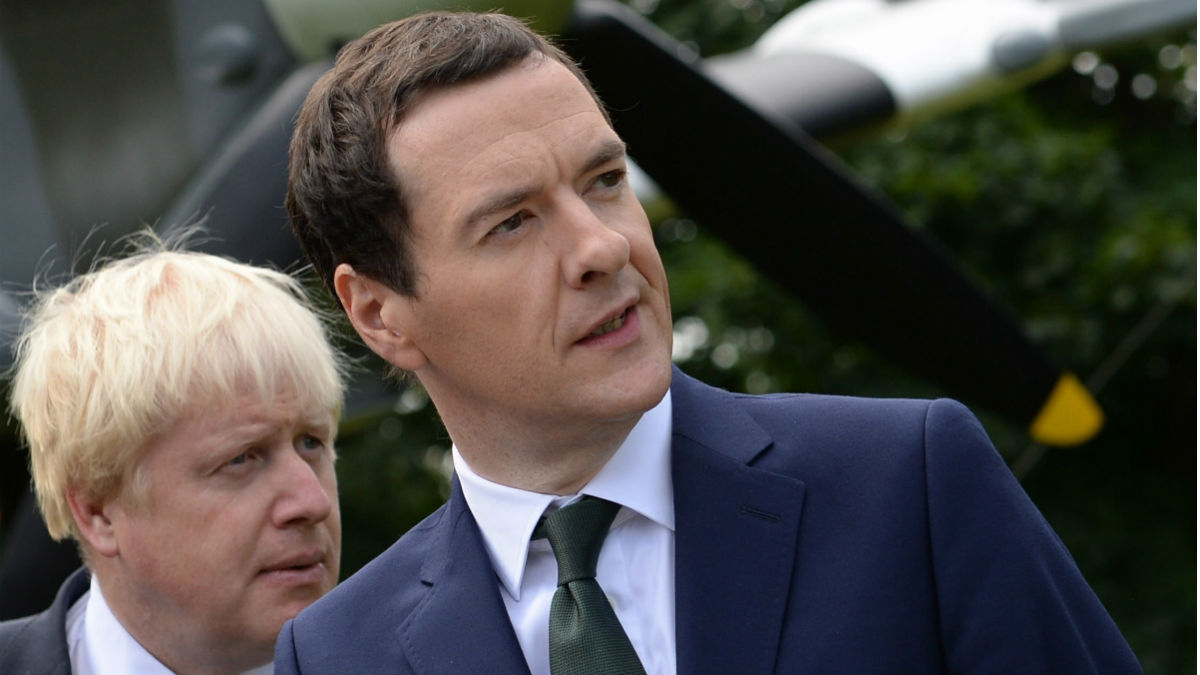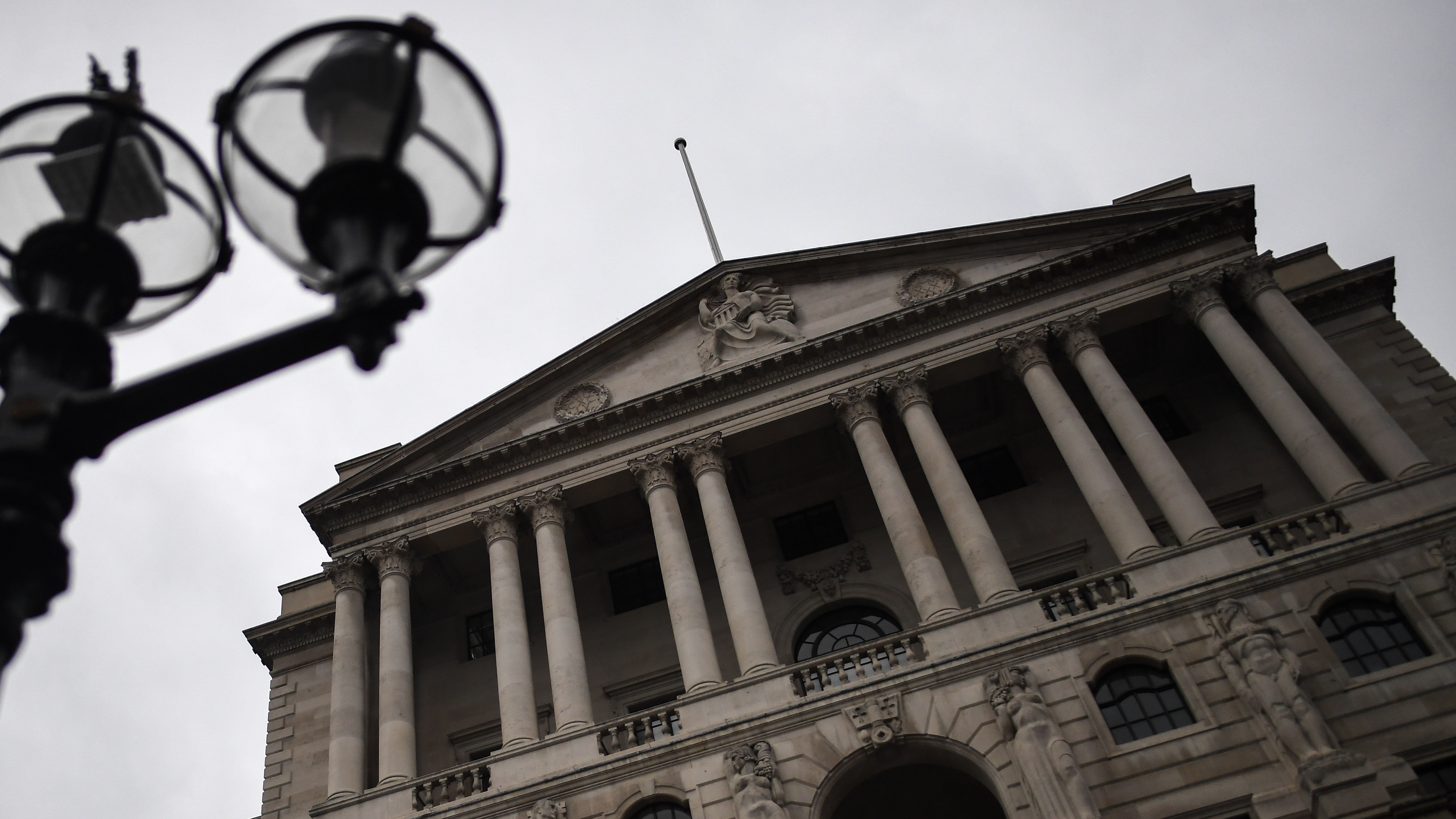Budget 2016: why did Osborne back down on pension tax reform?
Some believe U-turn is a "missed opportunity", while others say plans would have 'double-taxed' some savers

A free daily email with the biggest news stories of the day – and the best features from TheWeek.com
You are now subscribed
Your newsletter sign-up was successful
This week saw Chancellor George Osborne make another one of his infamous policy U-turns, this time on pension tax reform. “So many u-turns and 180-degree swivels has Mr Osborne performed that his chancellorship increasingly resembles an experimental dance routine,” says Ed Conway in The Times.
The latest about turn concerns wide rumours that the Chancellor was going to use next week’s Budget to introduce a flat-rate of tax relief on pensions. The scheme split opinion and this week the Treasury announced that pension tax relief wasn’t going to be changed in the Budget.
What was Osborne going to do?
The Week
Escape your echo chamber. Get the facts behind the news, plus analysis from multiple perspectives.

Sign up for The Week's Free Newsletters
From our morning news briefing to a weekly Good News Newsletter, get the best of The Week delivered directly to your inbox.
From our morning news briefing to a weekly Good News Newsletter, get the best of The Week delivered directly to your inbox.
It was believed that in the Budget Osborne was going to introduce a flat-rate tax relief on pension contributions. At present pension contributions attract tax relief relative to your income tax bracket. So, if you pay 20 per cent income tax you get 20 per cent relief on money you pay into your pension - and if you pay 45 per cent income tax you can claim 45 per cent relief on your pension savings. But, not everyone believes that is fair.
“The problem is not the £34bn that the chancellor channels into tax relief on pension contributions, but where the help is directed,” says Rachel Reeves, MP, in The Times. “Those in the top one per cent of the nation’s earners on more than £150,000 benefit by 45p of public money for every pound they save, but anyone earning less than £42,386 gets just 20p in tax relief for each pound. It is unjust and an ill-judged use of the nation’s strained finances.”
To tackle the problem the Chancellor was considering bringing in flat rate tax relief for everyone. This would mean that no matter what you earn, and pay in income tax, you would receive the same relief on your pension savings.
Research by think tank the Resolution Foundation found that “shifting to a 30 per cent flat rate instead would have boosted the pension pot of the median earner by £11,200, or 13 per cent, while a full-time employee on the national living wage would have been £3,200, or 14 per cent, better off,” says Heather Stewart in the Guardian.
A free daily email with the biggest news stories of the day – and the best features from TheWeek.com
Who didn’t like the plan?
While flat-rate relief would benefit basic-rate taxpayers who would start getting more money back from the government on their pension savings than they would have paid in tax, it would be hugely unpopular with higher and additional rate taxpayers. For them it would effectively mean their pension contributions are double-taxed.
“Higher rate taxpayers may end up paying tax at 40 per cent on their earnings, making a pension contribution that will receive a 30 per cent top up and then be taxed at 40 per cent again on the pension they receive,” says Philip Booth in The Telegraph. “So, some people, will, in effect, be ‘fined’ for making pension contributions.”
Booth goes on to tackle the idea that the pension relief system is unfair because higher earners get more relief than low earners. “This is not surprising; most tax is paid by higher-rate taxpayers.”
Why has Osborne abandoned his plans?
The reform has always been unpopular with many backbench Conservative MPs who fear it would hit the wallets of their key voters – the middle-classes. In the past Osborne may have been able to take that risk but the impending EU referendum means the pro-European Prime Minister want to keep people onside.
“With Tory MPs split down the middle on whether to leave the EU and some still making up their minds, the Prime Minister needs friends rather than enemies,” says Andrew Grive in the Independent. This means David Cameron could well have encouraged Osborne to put the devisive pension reforms on the back burner.
Will pension tax reform return to the headlines?
It’s highly unlikely we’ve heard the end of pension reforms. “The current political climate may have postponed the chancellor’s plans to overhaul pension saving,” says Adam Cortlett, an economic analyst at the Resolution Foundation, in the Guardian. “But with the reforms having the potential to significantly improve the retirement prospects of the majority of workers, it’s an issue that he should return to.”
-
 How the FCC’s ‘equal time’ rule works
How the FCC’s ‘equal time’ rule worksIn the Spotlight The law is at the heart of the Colbert-CBS conflict
-
 What is the endgame in the DHS shutdown?
What is the endgame in the DHS shutdown?Today’s Big Question Democrats want to rein in ICE’s immigration crackdown
-
 ‘Poor time management isn’t just an inconvenience’
‘Poor time management isn’t just an inconvenience’Instant Opinion Opinion, comment and editorials of the day
-
 Six ways to boost your finances in 2026
Six ways to boost your finances in 2026The Explainer It’s not too late to make a new year’s resolution to finally get organised money-wise
-
 The financial impact of returning to work in later life – should you 'unretire'?
The financial impact of returning to work in later life – should you 'unretire'?The Explainer Many people return to the workplace after retirement age, but what could it mean for your finances?
-
 State pension underpayments: are you getting the right amount?
State pension underpayments: are you getting the right amount?feature Hundreds of thousands of women may have received less than they were owed
-
 Early retirement: what is the ‘FIRE’ movement?
Early retirement: what is the ‘FIRE’ movement?feature Younger workers are aiming to quit the workforce early through extreme saving and investment
-
 How women can bridge the gender pension gap
How women can bridge the gender pension gapIn Depth New figures have shown the extent of the problem for women in retirement years
-
 How to plug the pension gap by buying National Insurance credits
How to plug the pension gap by buying National Insurance creditsfeature A temporary change in the state pension offers a ‘golden opportunity’
-
 Are UK pensions safe?
Are UK pensions safe?Today's Big Question Bank of England governor says its debt market support must end – but the multi-billion-pound scheme could be extended
-
 Pensions: time to end the triple lock?
Pensions: time to end the triple lock?In the Spotlight Ministers must decide whether to risk alienating older voters by ending guaranteed pension rises